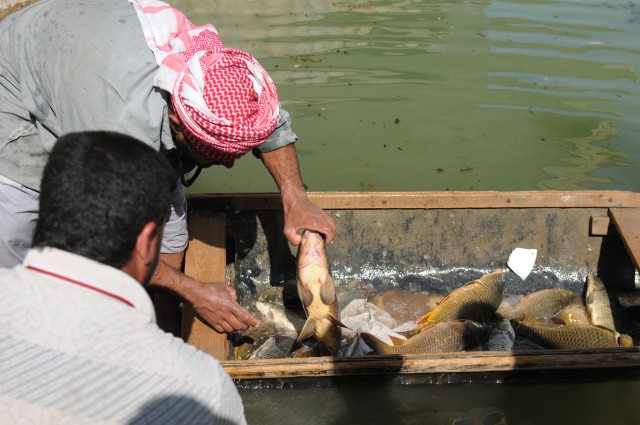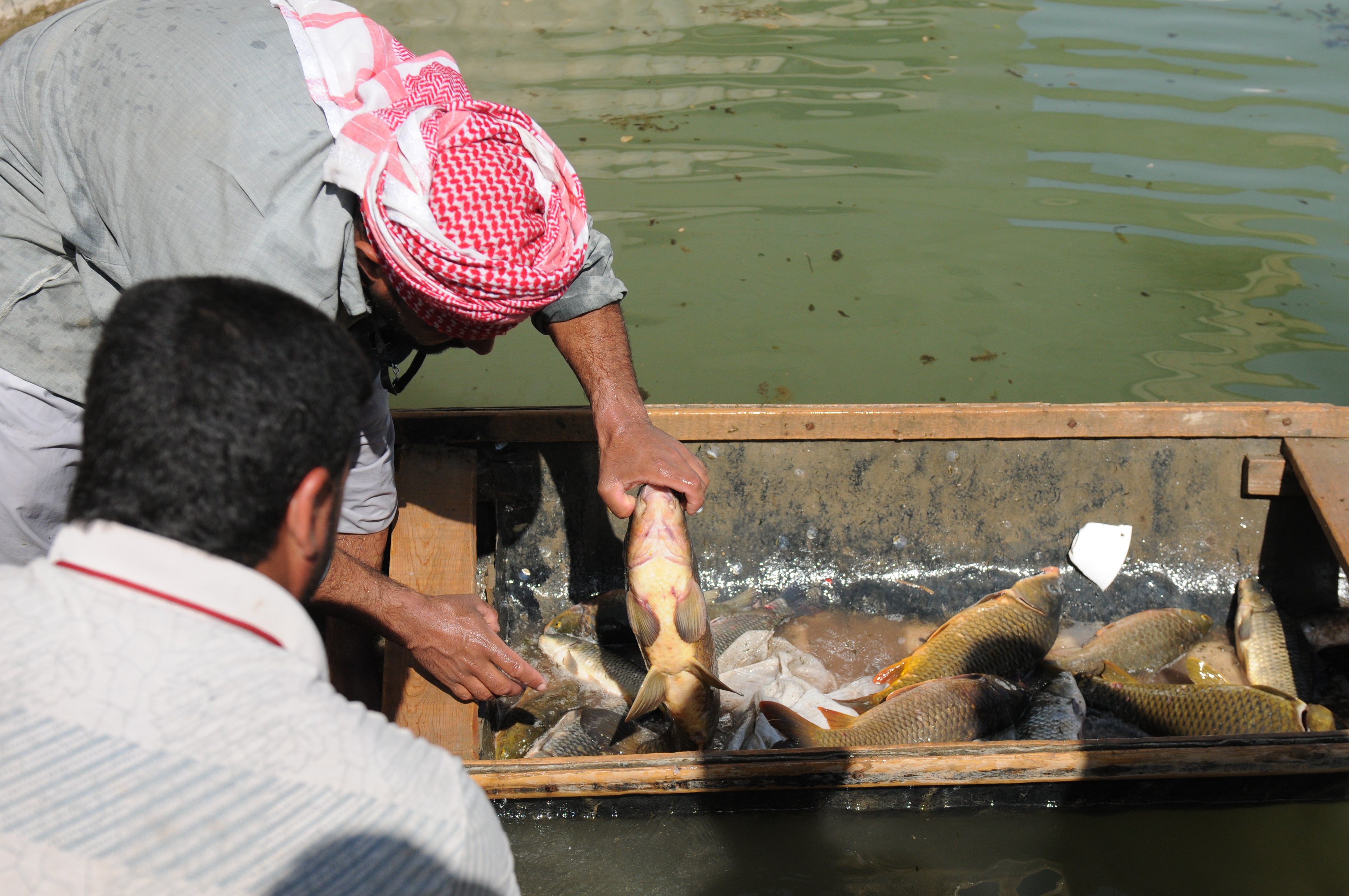Since 2007, the U.S. military and State Department have been working with the Iraqi Ministry of Agriculture and farmers to revitalize the fishing industry in Iraq. An organized project known as the Development and Spawning of Rare Fish was established to increase the population of rare species of fish in the marshes and wetlands in southern Iraq.
The weakened and drained marshes are the direct result of Saddam Hussein's directive. During Hussein's reign, huge networks of dams were built to dry the marshes as a punishment to Shiite rebels who hid in those areas after staging an uprising against his regime.
Over the years since the conflict, the marshes' inhabitants were displaced, said Col. Charles Heatherly, chief, civil-military operations, United States Forces - Iraq. But the rehabilitation
process of the marsh areas is progressing as this project continues.
"This is a joint-cooperative effort," he said. "We want to assist the Iraqi MoA to re-energize this portion of their economy by rebuilding the marshes."
The process is quite extensive in nature and very tedious, said Mansoor Hussein, senior agriculture advisor, civil-military operations, USF-I. "The individuals participating in this project, which consists of 17 fishermen and three MoA employees, are well-experienced and skilled for this task."
During the past weeks, the fishermen were fully engaged with boats and fishing nets, focusing on the lakes around Victory Base Complex such as the Al Faw Palace Lake, Z Lake,
Camp Slayer Lake and Lost Lake.
The lakes that surround Saddam's former palaces are home to rare, high-grade species of fish, Heatherly said. "The fish here are big and healthy because they are constantly fed."
Iraqis are particularly inclined to four types of fish: shabbout, gattan, binni and bizz. "These species are usually found in the Tigris, which make them very rare out here," said Hussein.
Revitalizing the fish population in Iraq is about just moving them from one location to another.
"This project is closely monitored, so we are out there watching them work the process," he said. "The catches are limited by the amount of females and males per species."
After the catches are evaluated, they are sent to two different laboratories in southern Iraq.
These labs specialize in the spawning process and house and observe the catches as they
grow from fingerlings to mature-aged fish.
Millions of carp fingerlings will soon be distributed to fish farms across central and southern Iraq. Because there is a very high demand for fish in this part of the world, the combined efforts of MoA, fish farmers, and the U.S. are working to satisfy that demand.
This project provides the potential to build a foundation for an enduring economic opportunity in the future for our counterpart well after U.S. Forces leave Iraq, Heatherly said. Because Iraq has great potential to regain its fresh water fisheries, they may be commercially well-developed by the end of this mission.


Social Sharing